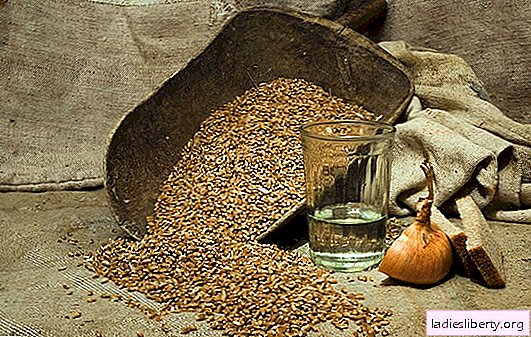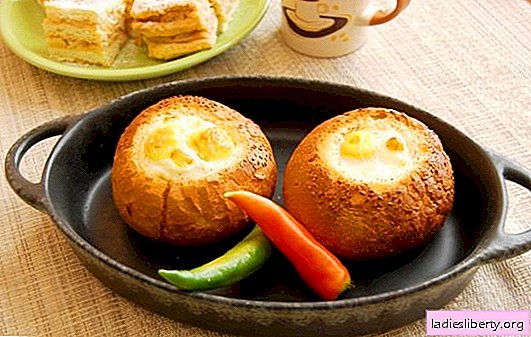
More than 75% of the population currently has signs of gastritis or peptic ulcer disease. Of these, more than half of patients do not pay attention to existing complaints and do not consider it necessary to consult a doctor. In addition to drug treatment, nutrition is an important part of therapy in many cases.
Many products can aggravate the disease or, conversely, significantly reduce its manifestations. Watermelon for gastritis and ulcers can be an ideal dietary product, if used correctly.
Useful properties of watermelon
It is known that watermelon is a giant berry that has beneficial properties due to its unique composition. In addition to water, which leaves 96%, it contains dietary fiber, microelements, as well as powerful antioxidants in the form of vitamins and lycopene - a substance that protects against the occurrence of neoplasms.
The low content of fats (0.2%) and proteins (0.7%) make it possible to attribute it to low-calorie (36 kcal per 100 g of pulp) dietary products. The content of a small amount of carbohydrates (8.8 g), consisting mainly of fructose (4.4 g), contributes to the minimum production of insulin by the pancreas and a sufficient amount of enzymes for digestion during inflammation of the gastric mucosa.
The composition of watermelon includes delicate dietary fiber (0.4 g), which enhance intestinal motility, reduce constipation, as a natural mild laxative. In addition, the watermelon has choleretic, anti-inflammatory properties, prevents the formation of stones in the gallbladder and kidneys.
The high content of magnesium, which is attributed to natural antidepressants, contributes to:
• improving the conduct of impulses at the level of nerve endings; calming the nervous system;
• strengthening vascular walls and improving blood supply to tissues; accelerate the absorption of other beneficial trace elements.
This is especially important in the presence of an ulcer of any localization, since one of the factors affecting the formation of a defect in the stomach or duodenum is neuropsychic (acute and chronic stress).
When a watermelon with an ulcer can not be included in the diet
During the period of the active phase of peptic ulcer with the presence of an ulcer, corresponding complaints and clinical manifestations (pain, heartburn, belching, decreased appetite, nausea, possibly vomiting), it is necessary to take into account that some properties of watermelon may be a contraindication and then watermelon should not be used for ulcers in quality diet food. In such cases, the beneficial properties of watermelon can harm: worsen the general condition, strengthen existing complaints and clinical symptoms of the disease.
Since watermelon causes increased secretion of gastric juice, which is one of the risk factors for peptic ulcer, even in the period of remission, the use of a large amount of this berry can cause exacerbation. With an active ulcer, the content of hydrochloric acid in the stomach is already high; watermelon will lead to its even greater formation, and, therefore, deterioration.
Another reason why watermelon is not allowed in an ulcer is the presence of ascorbic acid in it - vitamin C, which, being a strong antioxidant, nevertheless has an irritating effect on the epithelium of the stomach and duodenum, increasing the area of the ulcer, causing increased pain.
Given that all processes in the digestive tract are interconnected, the simple and complex carbohydrates that make up the watermelon cause increased bile secretion. As a result, acute or chronic pancreatitis develops. The synthesis of digestive enzymes in the pancreas and the digestion of fiber in the stomach are disturbed. In this regard, fermentation processes in the intestine intensify, flatulence, pain, loose stools appear and an even greater exacerbation of the ulcer occurs.
In addition, the use of watermelon containing nitrates causes the formation of toxic nitrites, leading to poisoning and the appearance of an acute ulcer.
Therefore, watermelon with an ulcer can not be used in the acute period. In the absence of pain and other clinical manifestations, you can try a small one or two slices of not more than 300 g per day and 2 times a week, dividing this portion in several doses. In this case, the watermelon should be ripe, without nitrates, at room temperature, its use should be between main meals so as not to cause increased fermentation and impaired digestion in the stomach. A large amount of product will lead to the appearance of pain and severe dyspeptic phenomena.
In which cases watermelon with gastritis can be used in food
Watermelon with gastritis is possible if the disease during this period is in the stage of stable remission, regardless of the level of acidity of the gastric juice.
Due to its beneficial substances, it has an anti-inflammatory effect on the digestive organs, including the stomach.
Watermelon has a high glycemic index and is quickly digested in the stomach - the whole process takes less than 20 minutes. This is due to the fact that it contains 96% of water.
At the same time, it has a good diuretic effect, so edema does not form, but there is a sufficient supply of the necessary fluid to the body.
Thus, the watermelon does not overload the stomach, if you do not overeat - with gastritis, 2-3 slices per day are shown.
Contraindications for the use of watermelon
There are some contraindications for its use if the patient has gastritis:
• it is not recommended to eat even small amounts of watermelon on an empty stomach - this can exacerbate inflammation of the mucosa, inhibit the digestion of food;
• you can’t eat the part of the pulp adjacent to the crust: it contains the maximum amount of toxins and nitrates;
• it is undesirable to use a very cold watermelon: it should be at room temperature, but it should be stored in the refrigerator: the shelf life of a quality intact watermelon is 2 weeks.
Watermelon for concomitant diseases
Watermelon with gastritis is possible in the presence of such concomitant diseases:
• atherosclerosis (watermelon significantly reduces its level in the blood due to increased excretion from the body);
• arthritis;
• headaches;
• neurosis.
Some recipes and menus for gastritis and ulcers
With gastritis, it is useful to consume in moderation not only the flesh (not more than 300 g in several doses daily), but also watermelon peels. To this end, they are thoroughly washed, crushed and boiled for half an hour, stirring constantly. After boiling, it is necessary that the broth is infused in a warm place for two hours. Then it is filtered, filtered and drunk 1 glass before a meal. According to the recipe, 1 tablespoon of boiling water needs 8 tablespoons of dry crushed crust. Since food with gastritis is fractional, the total amount of broth drunk is 5-6 glasses per day. The effect of treatment appears after a week of taking.
Useful in small quantities watermelon juice, cooked at home. Its daily amount should not exceed 150 ml (in the absence of diabetes mellitus). The juice has an anti-inflammatory effect on the wall of the stomach, reduces the symptoms of gastritis (nausea, pain, heartburn), improves appetite.
The use of watermelon in the form of jam, candied fruit, desserts, when added in small quantities to salads of fruits and berries, is recommended during the period of remission of gastritis and not earlier than 6 months after ulcer scarring. Watermelon is used against the background of the main diet, in which the following are prohibited:
• alcohol;
• spicy and fatty foods;
• carbonated drinks that irritate the gastric mucosa;
• strong coffee and tea, stimulating the production of gastric juice.
Diet
When compiling a weekly menu for a patient with gastritis, it should be borne in mind that nutrition should be:
• fractional - up to 6 times a day;
• in small portions;
• in the form of heat (strongly hot and extremely cold are contraindicated);
• food for gastritis should be crushed or cooked in small pieces, thermally processed, not injuring the mucous membrane.
In any case, the menu for the week, as well as recommendations for the use of watermelon, will be prompted by the doctor in each individual case, taking into account the stage of the disease, its severity, general condition of the body, weight and constitution of the patient, concomitant pathology, as well as medication taken. If you follow the advice of a specialist, you will be able to effectively cope with an exacerbation and in the future avoid relapses.











